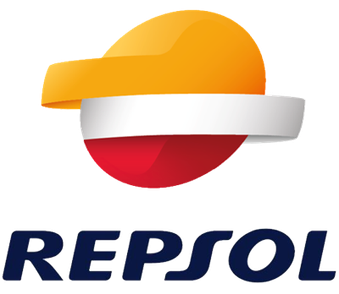The Environmental Protection Agency (EPA) is preparing to levy a fine against Spanish oil company, Repsol for a mud spill which occurred offshore in the Kanuku Block, even as the agency mulls lobbing government to push for 24/7 oversight and for new legislation to raise the paltry levies attached to such incidents.
EPA Head Dr. Vincent Adams confirmed the incident to Stabroek News when c ontacted, as he underscored the need for around-the-clock monitoring of offshore operations saying that had it not been mud, the consequences would have been disastrous.
Repsol has over a number of months not been responsive to queries from Stabroek News and no comment was forthcoming from the company yesterday even though it was contacted.
This newspaper was told that as the United Kingdom-headquartered Volaris Drilling company was carrying out drilling operations in the Kanuku Block, a valve was left opened which saw mud used to prevent well blowouts spilling into the ocean.
“The mud is the blood stream of the operations; it prevents blowouts of wells and there the mud was going into the ocean instead of going back into the wells to bring the drill cuttings to the surface. An open valve had the mud being dumped into the ocean,” one source told this newspaper.
Repsol began exploratory work in the Kanuku Block In November, 2018.
Sources say that the company attempted to downplay the incident.
When Adams was contacted, he said “Yes, I can confirm that there was a valve blowout and there was a mud spill. It is not the issue of mud. The systematic breakdown had the potential of a major disaster. It could have been something other than mud. This here was a breakdown in the systematic process in the conduct of operations to ensure the protection of environment, health and safety,” Adams said.
“In this case it could have been mud but the breakdown in the process could have caused major disaster in other parts of the operations. So the company will be fined although the maximum amount for such infractions is only $1M,” he added.
The mud is crucial for preventing blowouts as it helps to counteract the pressure from the wells as they are being drilled. The special mixture, is taken offshore from the mud plants and put to use in the drilling process. The weight of the mud maintains the reservoir pressure while bringing the cuttings from drilling upward.
Questioned as to what was the EPA’s response to the incident, Adams said that not just Repsol but all other operators were summoned to a “call to Jesus meeting” and “read the riot act” as he stressed that the agency would not tolerate negligence and ignorance of procedural actions.
“Of course the EPA responded. All of the operators were there and I am sure your source told you that I let them all understand that non-adherence to procedures would not be tolerated. This is an example of where we are not adhering to some of the basic principles, with respect to the protection of this environment. I won’t tolerate it” Adams said.
“Yes a valve was opened when it was supposed to be closed but …it was not an issue of the impact of the mud, which is inconsequential. It was the culture of a process that broke down, that could have been a disaster in any other part of the operations, as I pointed out to you before. One of the fundamental disappointments was the lack of procedures in place for conducting this operation, the maintenance process to make sure that there is reporting,” he added.
So disturbed is the EPA Head and staff about the incident, that he said that the agency will again be pressing government to ensure that there is 24/7 presence offshore for “vigilant oversight”.
“This will not be tolerated and it’s why I keep hitting more publicly about 24/7 oversight. . Incidents like these makes it easier to realize why It is necessary for us to build up our capacity for continuous oversight… I cannot say enough (that) the consequences could have been much more disastrous. You must have procedures. For example, step A, you check a box, step two you check another box, step three… procedures are essential. If you leave it to people’s memory, you can have human error. We need to have that around clock oversight,” Adams said.
“I am going to be pushing for that because we have a duty to protect. I will also seek to see that infractions like these, although it doesn’t have an environmental impact, that the fines be heavier because we must ask what if it wasn’t mud. One million and sixty six thousand is no money,” he added.










